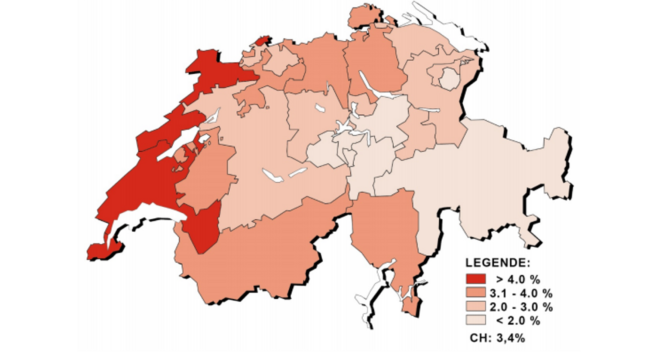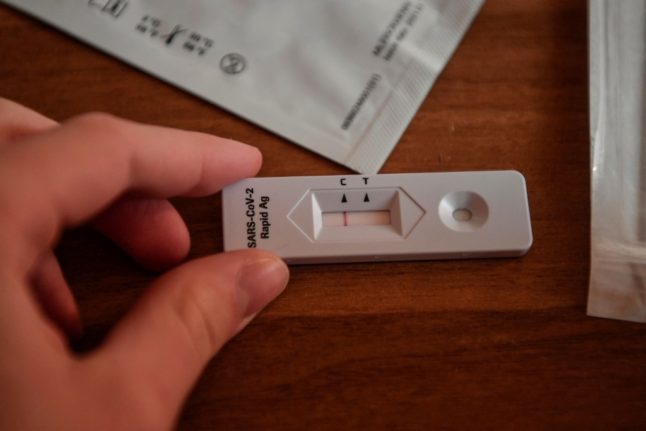Covid self-tests are not accurate, some doctors claim
Each Swiss resident is entitled to five free self-tests per month.
But Nicolas Vuilleumier, the head of service at the University Hospitals of Geneva (HUG), who is also president of the umbrella organisation of medical laboratories in Switzerland, said that due to their lack of sensitivity, these tests are not reliable screening tools.
“We will have problems of false negatives which will arise in relatively large proportions”, Vuilleumier warned in an interview with RTS public broadcaster.
The risk, he added, is that infected people will be “falsely reassured by a negative result” and not practice the health measures like wearing of masks and keeping distance.
READ MORE: Everything you need to know about Switzerland’s free coronavirus tests for every resident
Swiss unemployment rate dropped in March
The rate fell to 3.4 percent from 3.6 percent in February, according to the State Secretariat for Economic Affairs (SECO).
As SECO’s map shows, cantons in western Switzerland have the highest unemployment rate, though each experienced a decrease in March.

Geneva is still in the lead in regards to the proportion of unemployed people: 5.5 percent, 0.2 percent less than in the previous month. Next is Jura (5.4 percent, -0.3).
Neuchâtel posted a sharp decline, from 5.1 percent to 4.7 percent. Vaud also fell (4.6 percent, -0.3). But the biggest drop was recorded in Valais, which fell from 4.5 percent to 3.7 percent. Fribourg is approaching the national average, but remains above it with 3.5 percent (- 0.3).
Swiss People’s Party demands total re-opening of the economy
The right-wing Swiss People’s Party (SVP) is calling for re-openings, from April 19th, of restaurants, as well as cultural, sport and leisure activities, according to SonntagsZeitung.
In principle, other parties support the measure, but say April 19th might be too early.
“The conditions for rapid openings are there”, noted national Liberal councilor Daniela Schneeberger
But Leo Müller from Christian Democratic Party pointed out that April 19th “may be a bit early”, suggesting beginning of May instead. .
Controls stepped up after foreign tourists get vaccinated in two cantons
Tourists and foreigners not residing in Switzerland were able get Covid shots in Valais and Graubünden.
Both inadvertently vaccinated a number of tourists from abroad in ski resorts, as well as foreigners who own homes in the cantons.
Authorities are stepping up controls by verifying phone numbers and home addresses of people who register online for an appointment, excluding not only foreign tourists but also those living in other cantons. An exception is made for cross-border workers working in the health sector.
Migros discontinues selling some Rivella products
Switzerland’s largest supermarket chain has unceremoniously taken Rivella products off the shelves in order to pressure the manufacturer of the iconic Swiss beverage to lower its prices.
This action currently affects Rivella green tea, as well as Rivella Refresh and Focuswater. The classic red and blue Rivella are still available for the time being.
“Unfortunately we have not yet been able to reach an agreement and as a first step we had to temporarily remove some of the supplier’s items from the range that did not meet our price expectations”, Migros said.
In the past, retailers obtained price reductions by stopping orders. But according to Rivella, Migros has asked for prices that the manufacturer cannot accept.
If you have any questions about life in Switzerland, ideas for articles or news tips for The Local, please get in touch with us at [email protected]



 Please whitelist us to continue reading.
Please whitelist us to continue reading.
Member comments